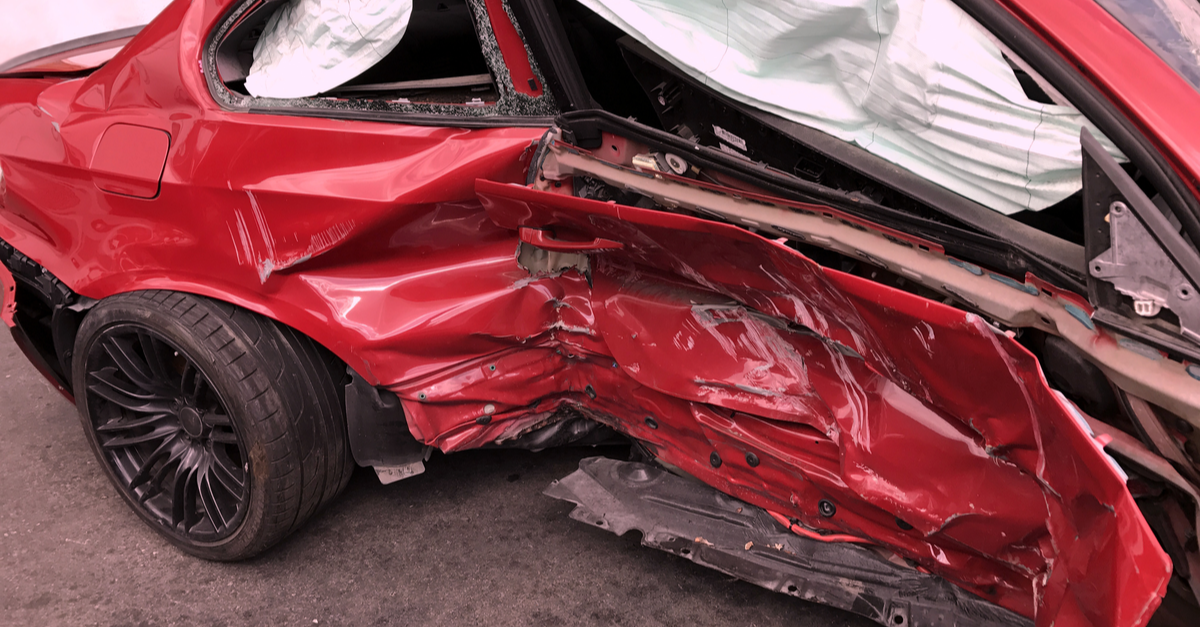WHAT IS A SIDE IMPACT COLLISION?
According to the Georgia Governor’s Office of Highway Safety, Cherokee County sees about 5,000 traffic accidents per year. Of these, roughly one in five will result in injuries. While side impact collisions are certainly not the most common type of crash to have in Cherokee County or elsewhere, they are one of the more common types of accidents to occur at an intersection; and, they are one of the most dangerous types to have. Read on for more information about side impact collisions. If you have been injured in this type of accident, an experienced car accident attorney can help you understand your legal options.
What Is a Side Impact Collision?
A side impact collision — also known as a T-bone or broadside crash — occurs when the front of one vehicle collides with the side of another vehicle. According to the Insurance Institute for Highway Safety, nearly a quarter of all passenger vehicle fatalities are a result of this type of accident. The reason that broadside collisions are so dangerous is because there is very little protection between the occupant sitting on the side of the vehicle that is struck and the striking vehicle, relative to the crumple protection and bumper zones offered in both rear-end and frontal impact crashes.
What Causes This Type of Accident?
Side impact collisions most often occur due to one driver’s failure to yield the right-of-way to another. Failure to yield accounts for more than 3,500 fatal accidents in the U.S. each year. These accidents generally occur in intersections, where one driver has failed to stop for a red light or a stop sign. Other places where a broadside collision can happen include:
- Parking lots
- Where a driveway pulls out onto a roadway
- Areas where a driver is making a legal or illegal U-turn
While most side impact collisions are the result of failure to yield, there are some examples of this type of accident occurring for other reasons, such as when a driver loses control of his or her vehicle and it travels perpendicular into a travel lane and is struck by another vehicle traveling in that lane. Often, this is the result of a previous accident or a driver losing control while swerving to avoid a collision.
A number of behaviors may result in a driver failing to yield the right-of-way, such as:
- Distracted driving. Failing to pay attention to a changing light or rolling through a stop sign while distracted by something else occurring inside or outside of the vehicle.
- Alcohol impairment. Alcohol impairment impacts one’s concentration as well as his or her ability to brake effectively.
- Aggressive driving. Aggressive driving behaviors are often exhibited by those who are running late. Some of these behaviors include tailgating, running red lights, and speeding.
- Vehicle defect. Defective or malfunctioning brakes may result in a driver being unable to yield at the intersection.
- Ignorance of traffic laws. Many individuals are unclear or unaware of the yield laws at stop signs.
- Turning onto a road or making a U-turn when there is not an ample gap in traffic in which to do so.
Who Is at Fault in a Side Impact Collision?
Generally, the individual who failed to yield the right-of-way is at fault for a side impact collision. This can be either the driver whose car was impacted on the side, or the driver whose car caused the side impact, depending on the details of the case. In broadside accidents that did not involve failure to yield, liability depends on who caused the accident that resulted in the vehicle traveling perpendicular in the lane.
What Types of Injuries Does a Side Impact Collision Cause?
As stated above, broadside collisions are among the most dangerous types of collisions, particularly for the occupants sitting on the side of the vehicle that was struck. This is especially true when the accident involves two vehicles of vastly different sizes or types. For example, the injuries suffered to occupants of two passenger cars will generally be less severe than the occupants of a passenger car that was struck broadside by a semi-truck. Some of the injuries that are associated with side impact collisions include:
- Head injuries. Head injuries in side impact collisions are often a result of the passenger’s head making contact with the window or simply being jolted violently back and forth from the impact of the crash. Head injuries are one of the main causes of death in car accidents. Those who survive may be left with permanent brain damage that can impair their ability to communicate, reason, walk properly, see, hear, or control their emotions.
- Spinal cord injuries. Like head injuries, spinal cord injuries occurring in a side impact collision may be caused by the violent back and forth motion of the body due to the accident’s force. They may also result in permanent, life-altering damage, such as loss of sensation and function — also called paralysis. Paralysis occurs beneath the part of the cord that was damaged, meaning that the higher up on the spine the injury occurs, the more parts of the body are affected.
- Broken bones. Due to the relatively low amount of protection provided by door panels, it is not unusual for an occupant’s bones to be broken in the crash, including hip, arms, legs, pelvis, and ribs.
- Back injuries. In addition to spinal cord injuries, individuals who are in side impact collisions may also suffer injuries to the spinal discs, vertebrae, or the soft tissues located in the back. While some of these injuries may heal within days or weeks, others may require surgery and result in complications such as chronic pain in the injured area.
Have You Been Injured in a Side Impact Collision?
If you’ve been injured in a side impact collision in Woodstock or other parts of Cherokee County that was caused by the negligence or recklessness of someone else, recovering from your injuries should be your primary concern. When you are able, consider speaking with an experienced car accident attorney; an attorney can serve as an advocate throughout your recovery, and ensure your best chance at securing the compensation you deserve for your injuries.
GET LEGAL HELP NOW
FOR A FREE CONSULTATION CALL
770-744-5250
OR FILL OUT THE FORM BELOW.



